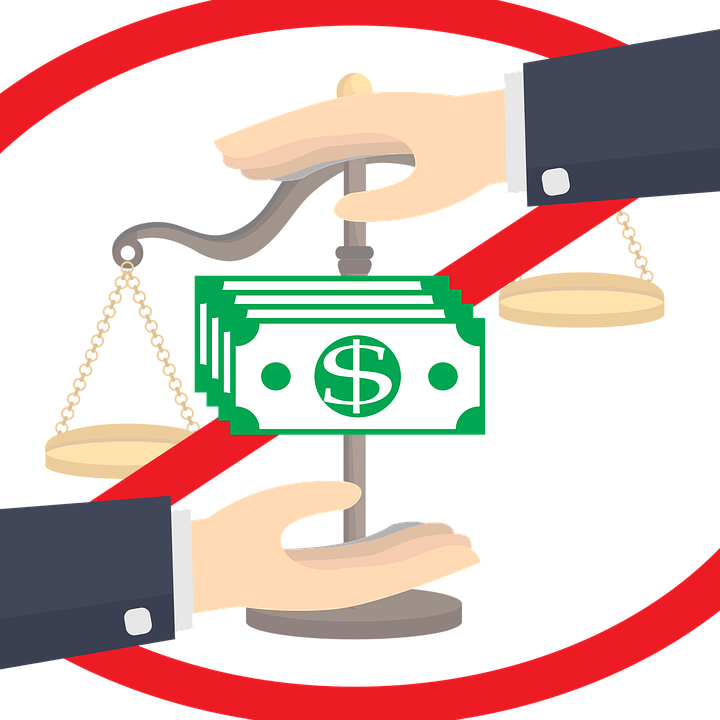Insider Information
It is knowledge about a public company's future movements or finances that has not yet been disclosed to shareholders.
Insider information is knowledge about a public company's future movements or finances that has not yet been disclosed to shareholders. As a result, it gives certain shareholders facts that may provide them an unfair advantage if used to make decisions.

In other words, sharing anonymous information regarding a company's operations, products/services pipeline, affairs, financial situation, etc., may influence stock prices or profits, which is insider information.
Insider trading is the illegal use of confidential information to an investor's advantage when buying or selling shares, but there are some legal instances.
The Securities and Exchange Commission governs legal trading.
In severe circumstances, there may be a financial scandal that is about to become public knowledge.
Not only are those who know the truth sworn to secrecy, but they are also prohibited by law from profiting from their insider information by purchasing or selling company shares or by disclosing it to another person who does.
Different examples of insider information
The following are some instances of how someone who is affiliated with or employed by a publicly traded firm may obtain insider information:

- The impending rate change.
- Information changes in the firm's related legal battles
- Earnings that were anticipated but did not materialize.
- Pending purchases and sales of the company's assets.
- Bankruptcy or insolvency possible filings.
- Changes made to the company's fiscal year.
- Change in the corporation's public accounting firm, corporate officials, or board of directors.
- Adjustments in accounting records.
Information about the actions taken by a corporation, such as a share repurchase program, dividend changes, stock splits, auctions, takeover bids, mergers, private placements, and public offerings.

Most financial institutions and investment firms have firewalls which in company finance is a legal impediment that forbids the disclosure of insider knowledge and the execution of financial transactions.
The firewalls prohibit the transfer of private information from one department to another, indicating that any private information should stay inside the boundaries of that specific department.
They limit communication across departments and may also be used to examine workers' trade activities.
Understanding the concept
Due to several schemes that made people rich over the past few decades, society has been particularly interested in insider trading.

Insider trading refers to the selling or acquisition of shares by employees of a corporation who use monopolistic knowledge to their advantage to produce atypical profits.
Information about a monopoly is confidential, sensitive to price, and important.
Information that is expected to have a major impact on the market price of the issuing company's shares or that a reasonable investor is likely to deem significant when deciding whether to trade specific security is said to be material.
While U.S. securities regulations prohibit such trading, the market frequently anticipates announcements; it may be profitable to use privileged knowledge.
Corporate insiders generally profit when they trade the shares of their firms. This is because their purchases frequently outperform stock purchases from a randomly chosen group of stocks.
The "knowledgeable" sellers' distributions frequently come before substantial price decreases. The efficient market hypothesis' strongest version is therefore categorically disproved.
But Is insider trading beneficial to the stock market? The Securities and Exchange Commission (SEC) has governed insider trading in the U.S. since the U.S. Congress voted "no" in 1934.
When is Insider Trading Legal and Illegal According to SEC
The SEC regulates trading activities. However, it is highly challenging to prosecute people who engage in such types of trading. The SEC can monitor insider trading using various techniques, but it is rare to prove it.

Big data and advanced techniques are used in market monitoring operations. Along with advice and grievance, receiving grievances from traders and/or investors on the losing end of a deal.
When the relevant facts are still a secret, insider trading is considered unlawful, with severe repercussions that may include fines and jail time.
Any information that might significantly affect the stock price of that firm is referred to as material nonpublic information, and no trades should be made on it.
Knowing this knowledge might impact an investor's choice to purchase or sell an asset, giving them an advantage over the general public without access to the same.
Weekly legal insider trading takes place on the stock market. The endeavor of the SEC to keep a fair marketplace exists at the root of the legality issue. As long as they promptly notify the SEC of these trades, it is permissible for corporate insiders to trade company shares.

The Securities Exchange Act of 1934 marked the beginning of the legal disclosure of stock-related transactions. Directors and significant stockholders, for instance, are required to report their holdings, transactions, and ownership changes.
Insider Trading Scandals
Media attention is frequently drawn to cases of insider trading, especially when a well-known person is implicated.
1. Martha Stewart
In 2003, Martha Stewart was charged by the SEC with obstruction of justice, securities fraud, and insider trading for her role in the 2001 ImClone case. But unfortunately, directors of corporations are not the only ones found guilty of insider trading.

Based on information from Peter Bacanovic, a Merrill Lynch broker, Stewart sold about 4,000 shares of ImClone Systems, a biopharmaceutical business. Samuel Waksal, the CEO of ImClone Systems, liquidated all of his firm stock before giving Bacanovic his advice.
During this period, ImClone was awaiting the Food and Drug Administration's (FDA) judgment about its cancer medicine, Erbitux.
The FDA denied ImClone's medication shortly after these sales, which led to a 16% drop in share price in one day. Nevertheless, Stewart's early selling prevented her from suffering a $45,673 loss.
However, the sale was conducted due to a tip she had regarding Waksal selling his shares; this information was not generally known.
Following a 2004 trial, Stewart was charged with offenses including obstruction of justice, conspiracy, and lying to federal agents. Stewart spent five months in prison, run by the federal government.
2. R. Foster Winans
The Wall Street Journal's "Heard on the Street" section was written by R. Foster Winans. Each time he wrote a piece, he would profile a different stock, and Winans would frequently predict whether the price would rise or fall.

Winans set up a deal in which he told a group of stockbrokers about the information in his column—specifically, the stock he was going to discuss. Before the piece was published, the stockbrokers would then buy shares of the stock.
The brokers allegedly handed Winans a portion of their earnings once they achieved financial success in exchange for his insight.
The SEC ultimately got hold of Winans. But unfortunately, the piece was Winans' view rather than actual inside knowledge, which complicated his argument.
However, the SEC ultimately found Winans guilty because the stock information in the column belonged to The Wall Street Journal and not to Winans.
3. Jeffrey Skilling
The fact that Skilling was the driving force behind the biggest corporate financial scandal in American history led to his downgrading from CEO to the prisoner. (Despite being found guilty of 19 counts of insider trading, conspiracy, and fraud, Skilling still claims his innocence.)

Skilling and his mentor, company founder Kenneth Lay, committed massive fraud against the stockholders of the Texas-based energy firm Enron.
To inflate the business's profitability and, by extension, the share prices of Enron stock, it employed dishonest accounting techniques (the outcome of a covert partnership between the corporation and its independent auditors).
Although many Enron officials, including Skilling and Lay, were well aware of the business's financial difficulties, the information was deftly concealed by the company's earnings reports. Employee stock purchases were encouraged by Enron.
Beginning in April 2001, just before rumors of the company's dire financial situation started to circulate, several executives sold a large portion of their shares of the company's stock in anticipation of the stock's impending decline.
Twenty-nine executives participated in insider trading by selling their shares even though they knew the company's stock price was about to plunge. As a result, Skilling profited $67 million in falsely inflated Enron stock between 1998 and 2001.




or Want to Sign up with your social account?